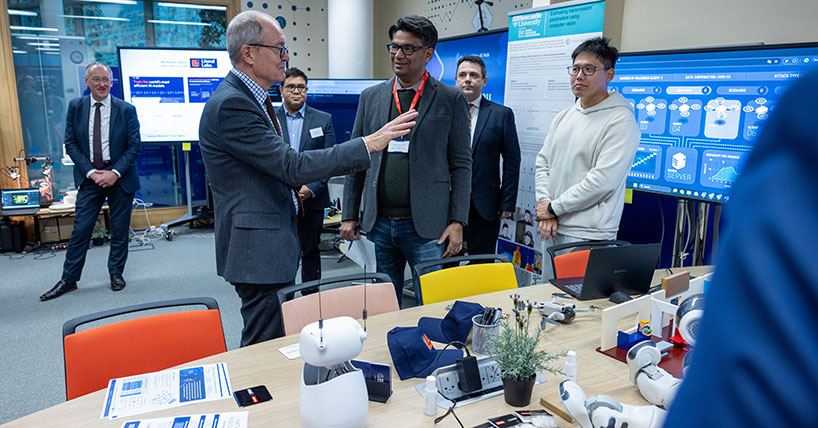Portabolomics
£7.5million to accelerate Synthetic Biology
Published on: 30 September 2016
Bridging the gap between the lab bench and industry to speed up the development of new biotechnological products.
A new project designed to bridge the gap between the lab bench and industry will ensure scientific discoveries that take years to replicate are a thing of the past.
The world-leading team of experts led by Newcastle University's School of Computing Science are looking to create a standard interface between research and industry that will speed up the development of new biological products, such as medicines, industrial chemicals or biofuels.
In doing so, the aim is to democratise the translational aspects of Synthetic Biology - making the information and technology available to everyone.

Synthetic Portabolomics
Jointly funded by the Engineering and Physical Sciences Research Council (EPSRC), Newcastle University and industry, the £7.5 million project will investigate how advances in the Digital Economy and Synthetic Biology could be synergised to engineer new living systems that behave in a predictable way in order to make industrial uptake easier.
The highly transdisciplinary project brings together colleagues from the Interdisciplinary Computing and Complex BioSystems research group, based in the University’s world-leading School of Computing Science, the Centre for Bacterial Cell Biology, the Centre for Synthetic Biology and the Bioeconomy and the Policy, Ethics and Life Sciences research centre.
Newcastle University is one of the few institutions in the world that studies Antimicrobial Resistance from the gene to the cell to the community to the watershed and is a world-leader in the field. Establishing a new branch of research, which the team have termed ‘Synthetic Portabolomics’, the idea is to create portable living systems that will allow efficient and economical portability between laboratory and industrial platforms. This will help reduce the current gap between experimental microbial strains and the industrial strains that are used for mass production of biologicals.
At the crossroads of the digital and bio economies
Natalio Krasnogor, Professor of Computing Science and Synthetic Biology at Newcastle University, and PI on the project explains:
“The aim is to remove the duplication that exists when trying to go from a laboratory demonstration to industrial prototyping.
“Exceptional people spend decades in a lab looking for new biological products and then one day – eureka! they find it. The problem is that because everything has been done in a test tube in a lab it usually takes another five years or more to translate the findings into the biological strains that industry needs.”
“If we can standardise across the board so that scientists and industry are using the same biological and computational interfaces, then translating those eureka discoveries into something industrially practical routinely will greatly benefit society as a whole.”
By standardising the interface, bio-materials can be engineered from the outset to be compatible across a number of platforms, explains Professor Krasnogor.
“This removes the risk of something going wrong and having to start again from scratch, wasting years of work.
“Portabolomics is at the crossroads of the digital and bio economies and a true breakthrough in the portability of living systems.
“We want synthetic biologists to be able to engineer new microbial systems in the lab and then port these directly into another species on a large scale without the risk of anything unpredictable happening.”



